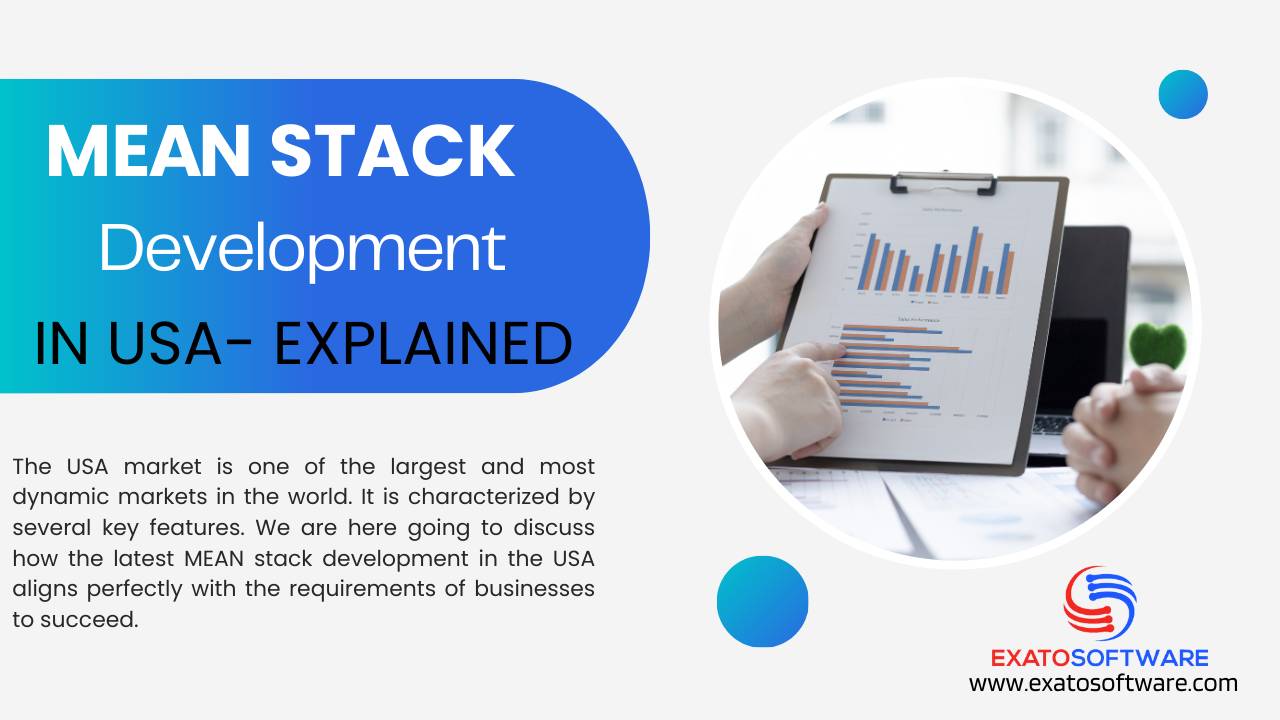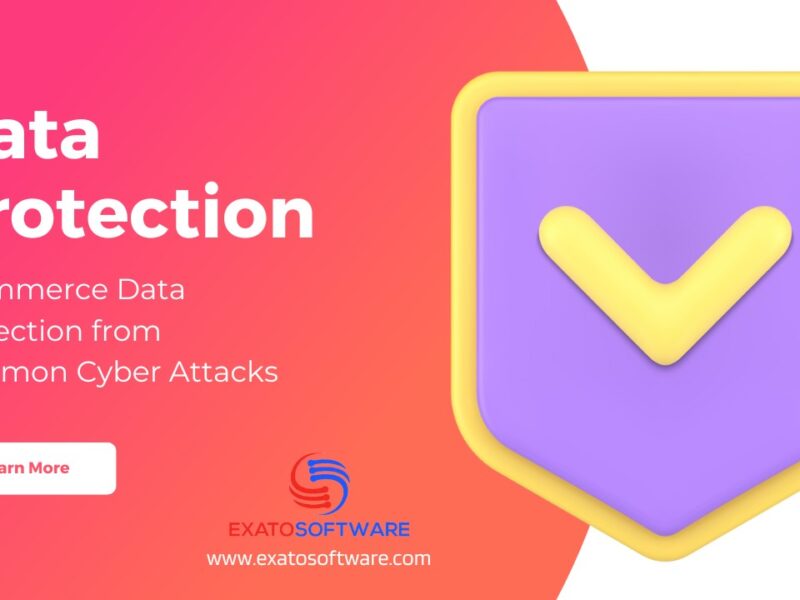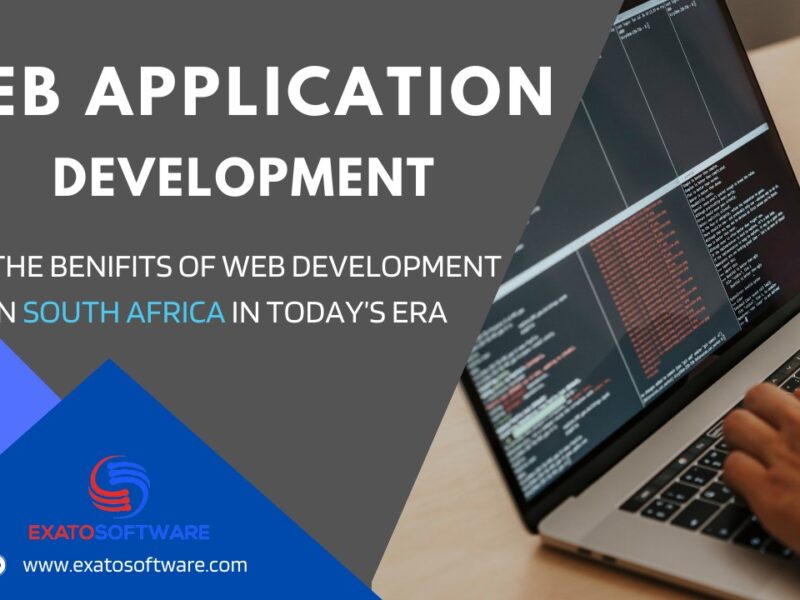The USA market is one of the largest and most dynamic markets in the world. It is characterized by several key features. We are here going to discuss how the latest MEAN stack development in the USA aligns perfectly with the requirements of businesses to succeed.
- Size: The USA market is massive, with a GDP of over $20 trillion, it offers significant opportunities for businesses across various industries.
- Diversity: The USA market is highly diverse, encompassing a wide range of demographics, cultures, and consumer preferences.
- Innovation and Technology: The USA is a global leader in sectors like tech, biotech, and finance. This emphasis on innovation creates opportunities for businesses to develop cutting-edge products and services.
- Competitive: The USA market is highly competitive, with numerous domestic and international companies striving for market share across industries.
- Regulatory Environment: The USA market has a complex regulatory environment, with federal, state, and local regulations governing various aspects of business operations, including taxation, labor laws, and industry-specific regulations.
- Consumer Behavior: American consumers are known for their diverse preferences and high expectations regarding product quality, customer service, and brand reputation.
Analysing these crucial features of the USA market it is understandable that running an online business or taking a business online needs supportive technology.
Success in any market requires a deep understanding of its dynamics, a strong value proposition, and the ability to adapt to changing consumer preferences and market trends. MEAN stack development in the USA is becoming popular as this technology allows the development of projects that suit the requirements of businesses for succeeding in the US market.
Before we discuss how MEAN stack development in the USA is helping businesses in a much better way than compared to older technologies let us why businesses would like to go online.
1. Consumer Behavior
- Market Size and Diversity: The USA market is vast and diverse, offering businesses access to a wide range of consumer demographics, preferences, and purchasing behaviors. Online businesses can leverage this diversity to target specific consumer segments more effectively and tailor their products or services to meet their needs.
- Digital Adoption: American consumers are highly digitally savvy and accustomed to shopping online. With the widespread use of smartphones, tablets, and computers, online businesses in the USA have access to a large and growing customer base that prefers the convenience of shopping from the comfort of their homes or on the go.
- Personalization Opportunities: Online businesses can utilize data analytics and personalized marketing techniques to understand and cater to individual consumer preferences better. By offering personalized recommendations, targeted promotions, and customized shopping experiences, businesses can enhance customer satisfaction and loyalty.
2. Diversity:
- Cultural Diversity: The USA is a melting pot of cultures, ethnicities, and backgrounds, resulting in a highly diverse consumer market. Online businesses can capitalize on this diversity by offering products and services that cater to different cultural preferences, dietary restrictions, languages, and lifestyles.
- Accessibility and Inclusivity: The accessibility of online platforms enables businesses to reach diverse consumer groups, including individuals with disabilities or those in remote areas. By ensuring that their websites and digital channels are inclusive and user-friendly, businesses can attract and retain customers from diverse backgrounds.
3. Regulatory Environment:
- E-commerce Regulations: The regulatory environment for e-commerce in the USA is generally conducive to online business operations, with laws and regulations governing areas such as consumer protection, data privacy, and electronic transactions. While compliance is necessary, the regulatory framework provides a level playing field for businesses and instils consumer confidence in online transactions.
- Taxation and Import Regulations: Businesses conducting online sales in the USA need to navigate various taxation rules, including sales tax, income tax, and import duties. While compliance can be complex, online platforms and tools can help businesses automate tax calculations and ensure compliance with regulatory requirements.
- Data Privacy and Security: With increasing concerns about data privacy and cybersecurity, businesses operating online in the USA must adhere to regulations such as the California Consumer Privacy Act (CCPA) and implement robust security measures to protect customer data and maintain trust.
4. Competition:
- Market Opportunities: Despite intense competition, the USA market offers abundant opportunities for online businesses to carve out their niche and differentiate themselves based on unique value propositions, product quality, customer service, and brand reputation.
- Innovative Landscape: The competitive landscape in the USA is characterized by innovation and entrepreneurship, with businesses constantly striving to differentiate themselves through technological advancements, product innovation, and customer experience enhancements. This environment encourages online businesses to innovate and stay ahead of the curve to remain competitive.
- Collaborative Ecosystem: While competition is fierce, the USA also fosters a collaborative business ecosystem, with opportunities for partnerships, collaborations, and industry alliances. Online businesses can leverage partnerships with suppliers, distributors, influencers, and complementary brands to expand their reach and gain a competitive edge.
So, conducting an online business in the USA market offers numerous benefits. Including access to a diverse consumer base, opportunities for personalization and customization, a supportive regulatory environment, and a competitive landscape that encourages innovation and collaboration.
MEAN stack development in the USA takes businesses online if they are on any legacy application faster and safely. MEAN stack development in the USA is also much beneficial as tech stack to start a new online business.
Here are a few features of MEAN stack Development that make it the most preferred tech stack for the development and migration of applications in the USA market.
1. Speedy Development Process
- Unified Language: MEAN stack uses JavaScript across the entire stack, from front-end to back-end, allowing developers to leverage their existing skills and knowledge without the need to switch between different languages or technologies. This leads to a more streamlined development process.
- Code Reusability: With MEAN stack, developers can reuse code components across different layers of the application, such as sharing validation logic between the client and server sides. This reduces redundancy and speeds up development.
- Full-Stack Development: MEAN stack enables developers to work on both client and server sides of the application using JavaScript. This facilitates faster development cycles as developers can seamlessly switch between front-end and back-end tasks without the need for context switching.
2. Scalability
- Node.js Scalability: Node.js, a key component of the MEAN stack, is renowned for its ability to handle a large number of concurrent connections efficiently due to its non-blocking, event-driven architecture. This makes it well-suited for building highly scalable applications that can handle increasing loads as the business grows.
- MongoDB Horizontal Scalability: MongoDB, the NoSQL database used in the MEAN stack, offers horizontal scalability by allowing businesses to distribute data across multiple servers in a cluster. This enables applications to scale out easily by adding more servers to accommodate growing data volumes and user traffic.
3. Post-Deployment Support
- Active Community: The MEAN stack enjoys a large and active community of developers, which means businesses can access a wealth of resources, tutorials, forums, and third-party libraries for ongoing support and troubleshooting.
- Modular Architecture: MEAN stack applications are often built using modular architecture, which makes it easier to maintain and extend the application post-deployment. Developers can add new features or make updates to specific modules without affecting the entire application, leading to smoother post-deployment support and maintenance.
4. Leveraging Latest Technology
- Continuous Updates: The components of the MEAN stack, including MongoDB, Express.js, AngularJS (or Angular), and Node.js, are continuously updated by their respective communities, ensuring businesses can leverage the latest features, performance improvements, and security patches.
- Support for Modern Practices: MEAN stack encourages the adoption of modern development practices such as microservices architecture, serverless computing, and DevOps principles. This allows businesses to stay ahead of the curve and build cutting-edge applications that meet the evolving needs of their users.
This is how MEAN stack development in the USA empowers businesses to develop scalable, high-performance applications rapidly, with ongoing support and access to the latest technology trends. MEAN stack ultimately helps businesses achieve their business objectives efficiently.



